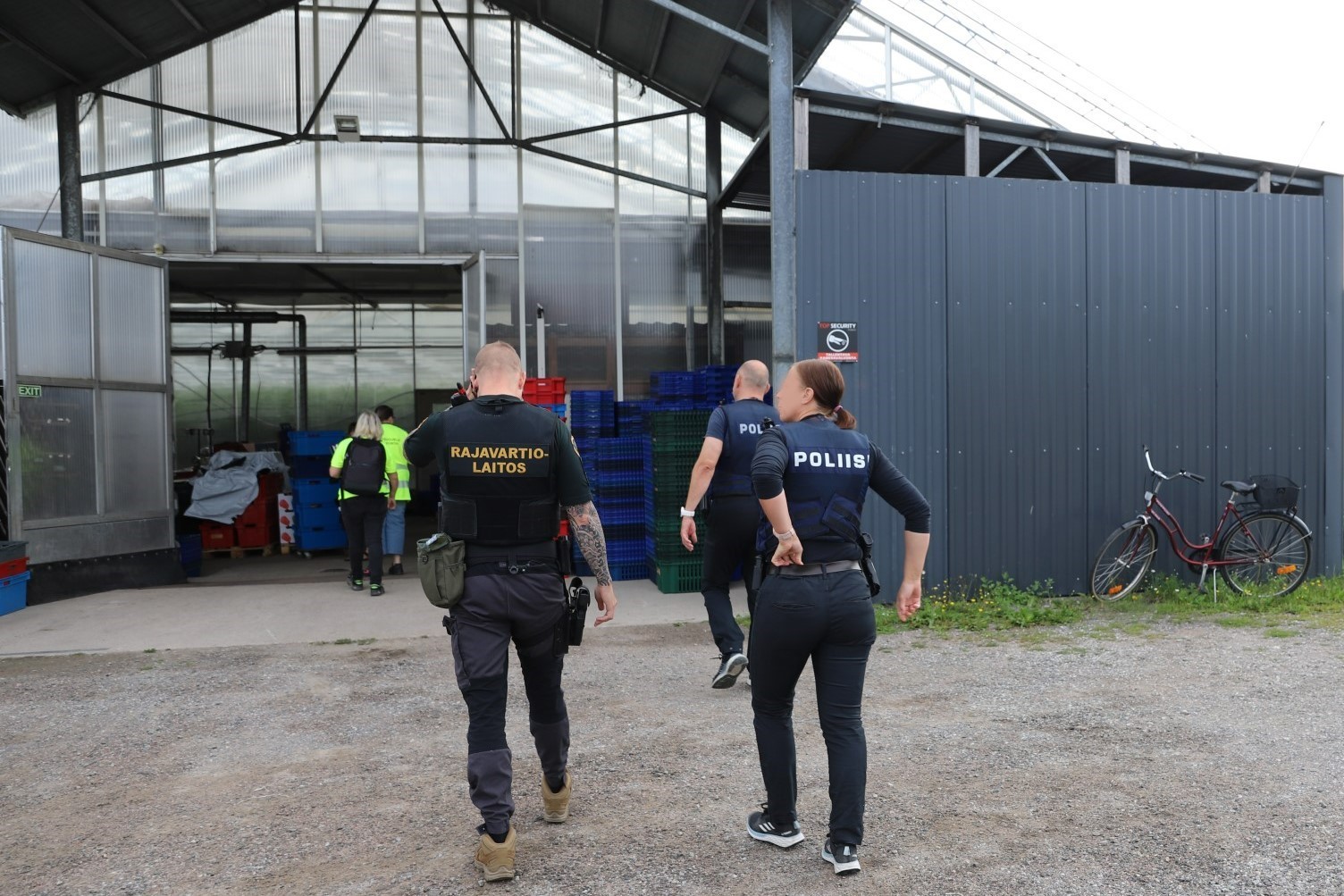Agricultural sector targeted by authorities during action days against human trafficking
Finland participated in Europe-wide action days against trafficking in human beings for labour exploitation in the agricultural sector. The Police, Regional State Agency and the Border Guard inspected, for example, berry farms in August. Based on the action days, the situation in the Finnish agricultural sector is generally good.

The action days against trafficking in human beings for labour exploitation in the agricultural sector were organised in Finland from 8 to 19 August 2022 as part of an operation coordinated by Europol. The Police, Regional State Agency and the Border Guard inspected, for example, farms, berry farms, greenhouses and residential premises in different parts of the country.
In Finland, the authorities inspected 117 locations, 753 persons and 777 documents, i.e. 1,647 targets in total. A large proportion of the persons inspected were those who had fled from the war in Ukraine and are working mainly as seasonal workers.
– The main objective of the action days was to detect and prevent criminal activities. The results in Finland were generally good, and no major cases of exploitation were detected. However, the information is still being analysed, and it is possible that new cases will emerge. It is also good to keep in mind that the dark figure in human trafficking for labour exploitation is quite high, says Detective Chief Inspector Johannes Siirilä of the National Bureau of Investigation.
Seasonal workers are vulnerable
There are many foreign seasonal workers in the agricultural sector who may not know the Finnish legislation and who may be in a vulnerable position in terms of workers' rights. Exploitation practices may include inconsistencies and shortcomings in the payment of wages and in working time records as well as breaches of minimum wages.
– During the action days, the authorities detected four cases where workers had had to pay a 'mediation fee' to a recruitment agency to get a job. It is suspected that an employment agency offence was committed in these cases. The authorities also detected 20 cases where a person was working without a work permit and three cases of suspected unauthorised use of foreign labour. It is good to note that employers must be aware of their foreign employees' right to work both at the beginning and during the employment relationship, says Siirilä.
Findings from action days to be used to further improve crime intervention and prevention
The Europe-wide action days in the agricultural sector were carried out during the late summer and autumn as part of the operations of the European Multidisciplinary Platform against Criminal Threats (EMPACT). The operation was led by France and coordinated by Europol. Authorities from 16 countries participated in the operation.
The action days focused not only on identifying and detecting criminal activities and victims of crime, but also on enhancing European cooperation to prevent and detect crime. The aim is to have better understanding of the phenomenon through the inspections carried out and provide up-to-date information about it to contribute to situational awareness related to trafficking in human beings and associated criminal activities.
– Multidisciplinary cooperation between authorities is important and has proved effective during the action days. However, action days and inspections alone are not enough, but a wide range of measures is needed to root out trafficking in human beings for labour exploitation. The authorities made important findings during the operation, which will help to further develop methods for investigating and preventing human trafficking for labour exploitation. For example, there are often challenges in questioning potential victims, and we have been able to improve our methods based on the findings, says Siirilä.
874 workers affected by labour violations identified in Europe
According to Europol, especially seasonal workers are at a high risk of labour exploitation and human trafficking in Europe. EU citizens are mostly exploited in the agricultural sector year-round, while non-EU citizens are exploited in seasonal work.
In the countries participating in the action days, more than 37,000 persons were inspected, of whom 874 had been affected by labour violations, and 231 of them were identified as possible victims of human trafficking or labour exploitation. Roughly 4,200 locations, such as farms and vineyards, were inspected. The operation resulted in 36 new investigations.
Europol released information on the international results of the action days last week. Link to Europol's press release.
The police released information on the previous EMPACT action days in July. The previous operation targeted cleaning business. Link to the previous press release.
The Police's photos from the action days:
socialShareGray




